
Porto-Novo: The Tranquil Capital of Benin
Porto-Novo, the capital city of Benin, is a gem waiting to be discovered. Nestled on the shores of Lake Nokoué, this city offers a blend of rich history, vibrant culture, and serene landscapes. The city's colonial architecture stands as a testament to its storied past, with buildings that date back to the Portuguese and French colonial eras. The Royal Palace, for instance, provides insight into the kingdom's history and is a must-visit for any history enthusiast. Stroll through the city's markets and you'll be greeted with a burst of colors and sounds. The bustling Porto-Novo Market is famed for its array of traditional crafts, local produce, and vibrant textiles. Don't miss the opportunity to savor local delicacies like 'akassa' and 'amitou', which offer a true taste of Beninese cuisine. Nature lovers will appreciate the lush green spaces and tranquil parks. The Jardin Place Jean Bayol is a peaceful spot to relax and enjoy the local flora. For a deeper connection with nature, a visit to the nearby Lake Nokoué offers opportunities for bird watching and boat tours that reveal the beauty of the region's waterways. Porto-Novo is also a hub for cultural experiences. The Ethnographic Museum of Porto-Novo showcases the diverse traditions and history of the various ethnic groups in Benin. Here, visitors can learn about the unique practices, music, and art that define Beninese culture. The city's festivals, such as the annual Voodoo Festival, provide a lively and immersive experience into the spiritual and cultural life of the locals.
Local tips in Porto-Novo
- Visit the Royal Palace early in the day to avoid crowds and take advantage of guided tours.
- Bring cash when shopping at local markets as credit cards are rarely accepted.
- Learn basic French phrases; it is widely spoken and will help in communicating with locals.
- Wear comfortable walking shoes as many attractions are best explored on foot.
- Respect local customs, especially during festivals and in religious sites.
Porto-Novo: The Tranquil Capital of Benin
Porto-Novo, the capital city of Benin, is a gem waiting to be discovered. Nestled on the shores of Lake Nokoué, this city offers a blend of rich history, vibrant culture, and serene landscapes. The city's colonial architecture stands as a testament to its storied past, with buildings that date back to the Portuguese and French colonial eras. The Royal Palace, for instance, provides insight into the kingdom's history and is a must-visit for any history enthusiast. Stroll through the city's markets and you'll be greeted with a burst of colors and sounds. The bustling Porto-Novo Market is famed for its array of traditional crafts, local produce, and vibrant textiles. Don't miss the opportunity to savor local delicacies like 'akassa' and 'amitou', which offer a true taste of Beninese cuisine. Nature lovers will appreciate the lush green spaces and tranquil parks. The Jardin Place Jean Bayol is a peaceful spot to relax and enjoy the local flora. For a deeper connection with nature, a visit to the nearby Lake Nokoué offers opportunities for bird watching and boat tours that reveal the beauty of the region's waterways. Porto-Novo is also a hub for cultural experiences. The Ethnographic Museum of Porto-Novo showcases the diverse traditions and history of the various ethnic groups in Benin. Here, visitors can learn about the unique practices, music, and art that define Beninese culture. The city's festivals, such as the annual Voodoo Festival, provide a lively and immersive experience into the spiritual and cultural life of the locals.
When is the best time to go to Porto-Novo?
Iconic landmarks you can’t miss
Toffa
Discover the spiritual and historical significance of Toffa, a captivating landmark in Porto-Novo, blending culture, architecture, and community.
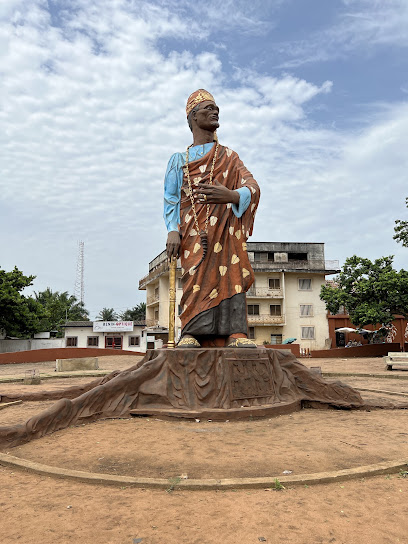
Porto-novo Bénin
Explore Porto-Novo, Benin: a dynamic blend of comedy, floating markets, and organic treasures in the heart of West Africa.
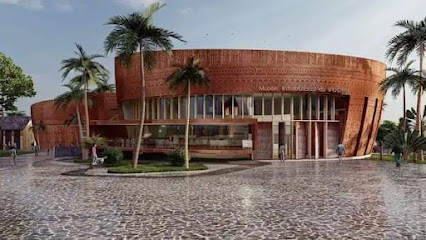
Hotel Dona
Discover the heart of Porto-Novo at Hotel Dona, where comfort meets culture in a vibrant Beninese setting, perfect for all travelers.

Jardin des Plantes et de la Nature (JPN)
Discover the tranquility of Jardin des Plantes et de la Nature in Porto-Novo, a lush sanctuary showcasing diverse plant species and vibrant local biodiversity.
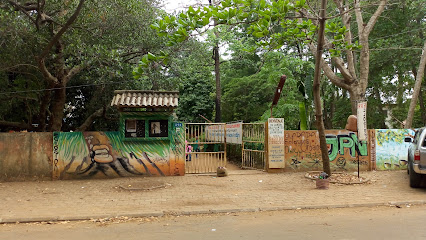
OUADADA Cultural Center
Discover the heart of Benin's culture at OUADADA Cultural Center in Porto-Novo, where art, music, and tradition come alive in vibrant exhibits.
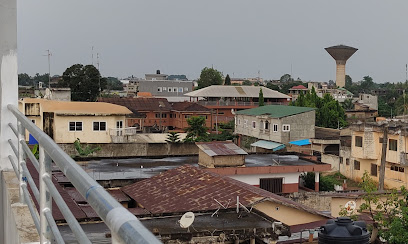
Regional Center Songhaï
Explore the intersection of tradition and innovation at the Regional Center Songhaï in Porto-Novo, where sustainable agriculture meets community empowerment.
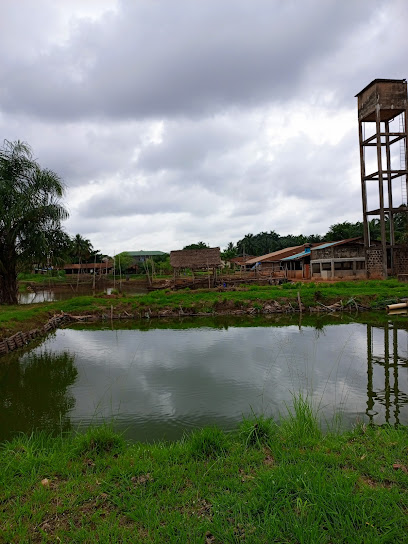
Honmè Museum
Unveil the stories of Benin's past at Honmè Museum, a cultural gem in Porto-Novo showcasing rich heritage and history.
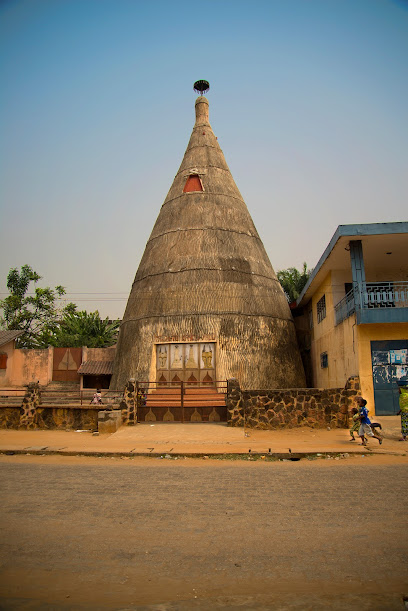
HOTEL AYELAWADJE 2
Stay at Hotel Ayelawadje 2 in Porto-Novo for a blend of comfort, culture, and convenient access to the rich heritage of Benin's capital.

ART Residence
Discover the vibrant culture of Porto-Novo while enjoying modern comforts at ART Residence, the perfect hotel for travelers seeking an authentic Benin experience.
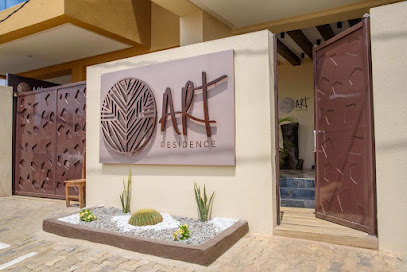
Hotel Les Oliviers
Experience the vibrant culture of Porto-Novo at Hotel Les Oliviers, where comfort meets local traditions and culinary delights.
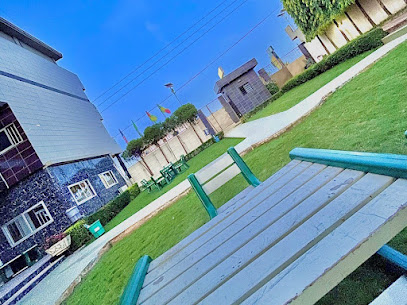
Freedom Palace Hôtel
Discover the charm of Porto-Novo at Freedom Palace Hôtel, where comfort meets authentic Beninese culture.

Tour Eiffel Hotel Benin
Discover the blend of comfort and cultural charm at Tour Eiffel Hotel Benin, your gateway to exploring Porto-Novo's rich heritage.

Coop Porto-Novo
Discover the flavors of Benin at Coop Porto-Novo, where local culture meets culinary delights in a vibrant supermarket setting.
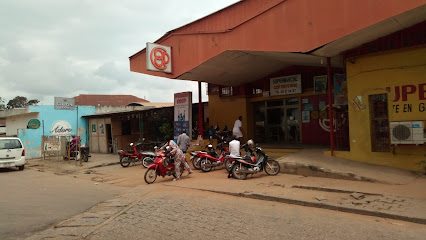
Nonvi Voyage Plus - Station Embarquement Welcome Ouando
Explore Porto-Novo and beyond with Nonvi Voyage Plus, your gateway to seamless travel and vibrant experiences in Benin.
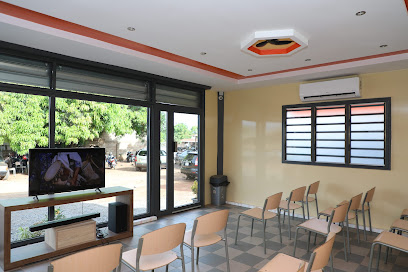
Grande Mosquée de Porto Novo
Discover the Grande Mosquée de Porto Novo, a breathtaking blend of architectural beauty and cultural significance in the heart of Benin.
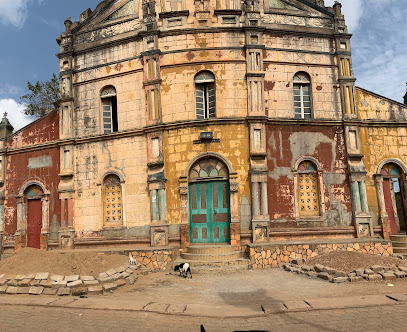
Unmissable attractions to see
Porto-novo Bénin
Discover the cultural richness and vibrant comedy scene of Porto-Novo, Benin's capital, where tradition meets modern entertainment.

Jardin des Plantes et de la Nature (JPN)
Discover the vibrant flora and playful wildlife at Jardin des Plantes et de la Nature, a serene botanical paradise in Porto-Novo.
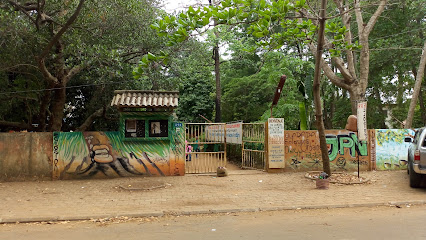
Badagry Heritage Museum
Discover the rich history of Badagry at the Badagry Heritage Museum, a key site for understanding Nigeria's cultural heritage and the impact of the slave trade.
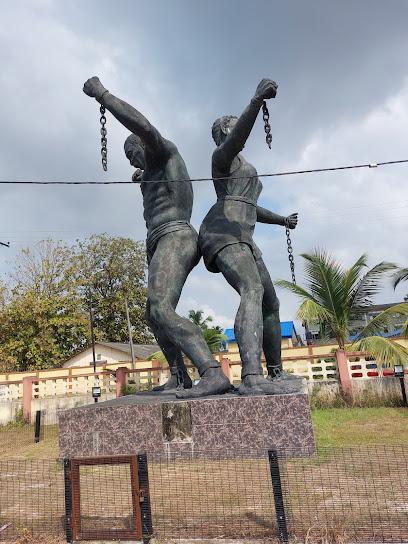
Honmè Museum
Explore the Honmè Museum in Porto-Novo for an immersive experience into the rich history and vibrant culture of Benin.
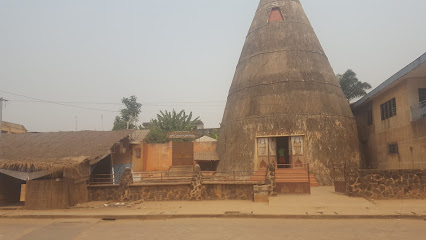
Visit Badagry Slave Museum
Discover the poignant history of the transatlantic slave trade at Badagry Slave Museum, a vital cultural landmark in Nigeria.
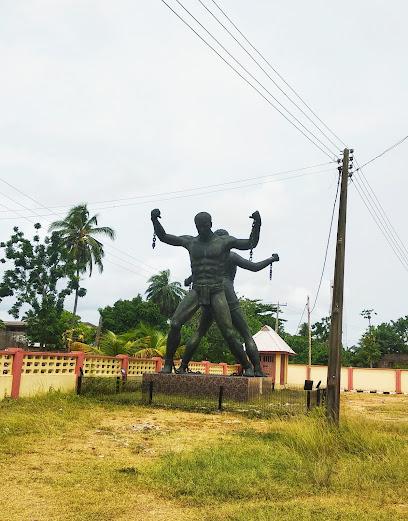
Grande Mosquée de Porto Novo
Explore the Grande Mosquée de Porto Novo, a stunning architectural gem reflecting the rich Islamic heritage and community spirit of Benin.
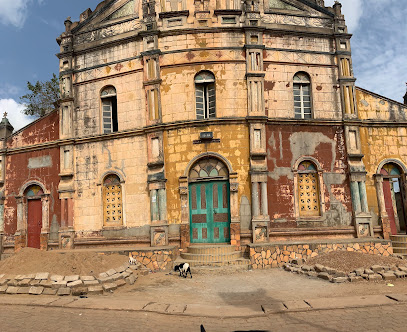
Parc d'attraction Ifè
Discover the beauty and fun of Parc d'attraction Ifè in Porto-Novo, a family-friendly park filled with greenery, attractions, and cultural experiences.
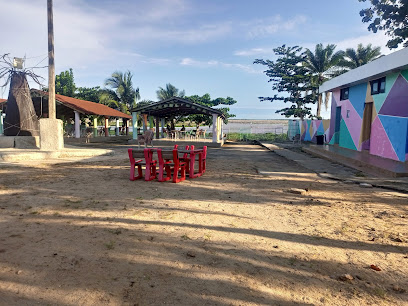
Centre Marial Maria-Tokpa
Experience the spiritual tranquility of Centre Marial Maria-Tokpa in Porto-Novo, a unique church blending faith and local culture in Benin.
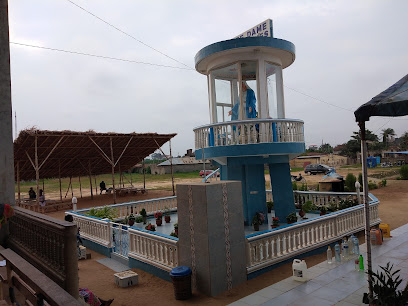
Disney-Land
Experience the enchantment of Disney-Land in Porto-Novo, a magical amusement park that promises fun, adventure, and unforgettable memories for the whole family.
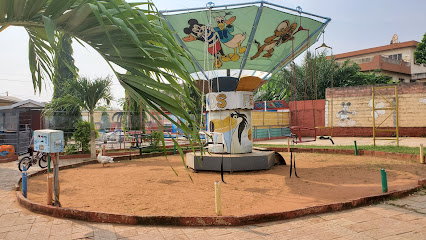
Ancien Cimetière de Porto Novo
Uncover the historical treasures at Ancien Cimetiere de Porto Novo, a serene museum experience rich in cultural significance and captivating stories.

Parc automobile Ouando
Explore the lush landscapes and vibrant local culture at Parc Automobile Ouando in Porto-Novo, a tranquil retreat for every traveler.
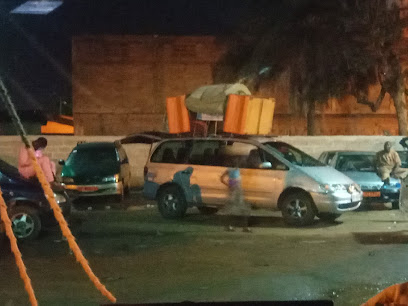
Grande Mosquée de Porto Novo 3
Explore the Grande Mosquée de Porto Novo: a stunning architectural gem and cultural landmark in the vibrant heart of Benin.

PLACE DE L'INDEPENDANCE
Experience the vibrant culture and rich history of Porto-Novo at the lively Place de l'Indépendance, a must-visit square in Benin.
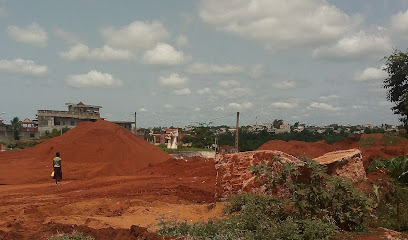
Place Migan
Explore the rich heritage of Benin at Place Migan, Porto-Novo's premier museum showcasing local culture and history.
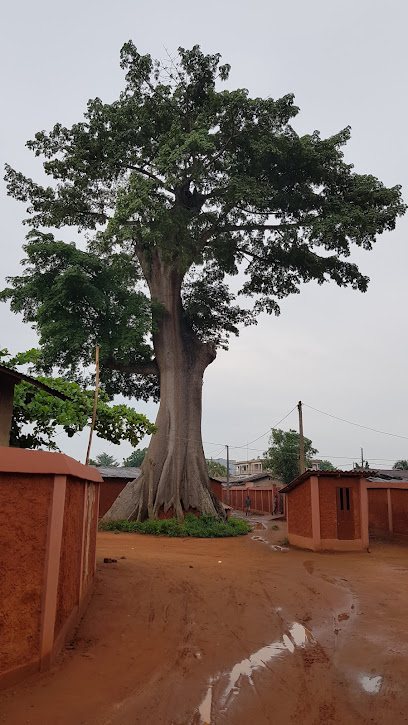
Porto Novo Ethnographic Museum
Explore the rich cultural heritage of Benin at Porto Novo Ethnographic Museum, showcasing diverse traditions and historical narratives.
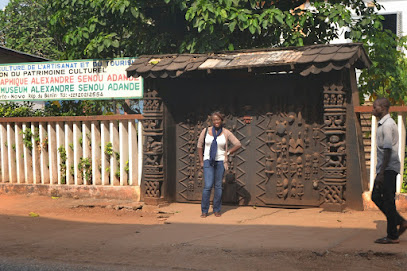
Essential places to dine
Restaurant Les Delices
Experience authentic Beninese cuisine at Restaurant Les Delices in Porto-Novo - where flavor meets tradition in a warm atmosphere.
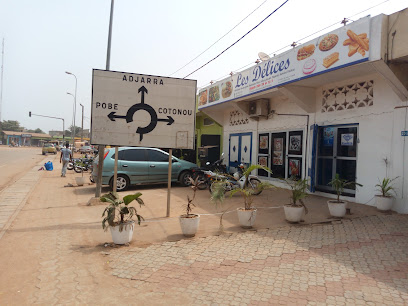
L'Endroit by Olabissi
Experience the rich flavors of Benin at L'Endroit by Olabissi, a culinary haven in Porto-Novo offering exquisite dishes in a vibrant atmosphere.
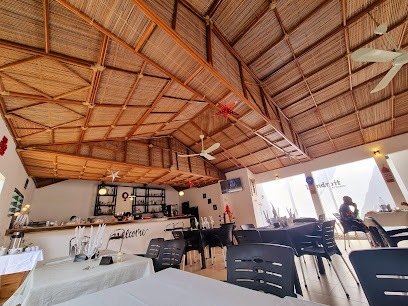
PortoGrill
Discover the vibrant tastes of Porto-Novo at PortoGrill, where local ingredients meet international flair in every dish.
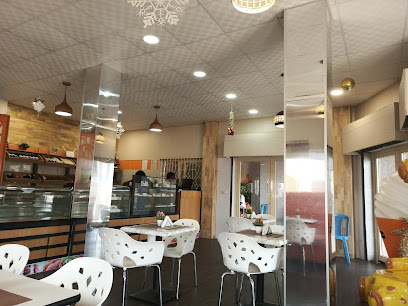
Restaurant VEGAN SUMA bio
Discover delicious vegan cuisine at Restaurant VEGAN SUMA bio in Porto-Novo—where every bite is a celebration of health and flavor.
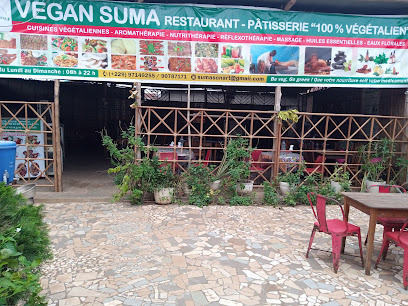
AfricanFoodseum
Discover the authentic taste of Africa at AfricanFoodseum in Porto-Novo – where every dish tells a story.
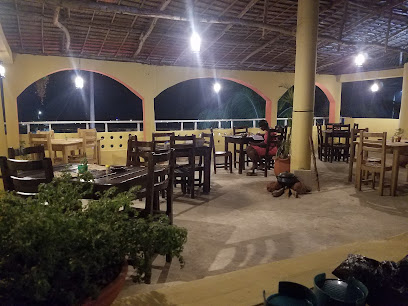
Quickly
Discover Quickly: A Pizza Haven in Porto-Novo Serving Authentic Italian Delights with Fresh Ingredients and Friendly Service.
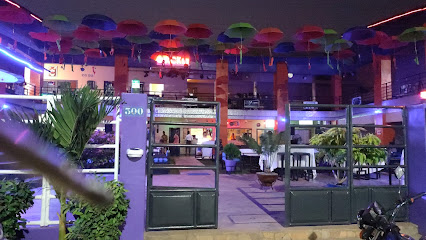
DÊGUÊ PALACE Restaurant, Café, Dêguê, Cous-cous, Pâte, Riz, Shawama, Emberguer
Discover authentic Beninese cuisine at DÊGUÊ PALACE Restaurant, where flavorful dishes meet a warm atmosphere in Porto-Novo.
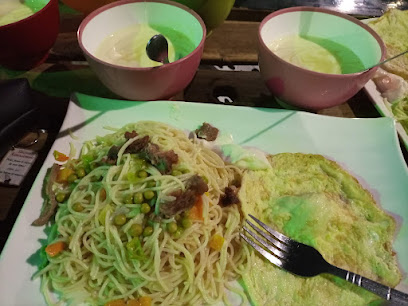
ARK INTERNATIONAL PORTO-NOVO
Discover the vibrant flavors of Benin at Ark International Porto-Novo - where tradition meets modern dining.
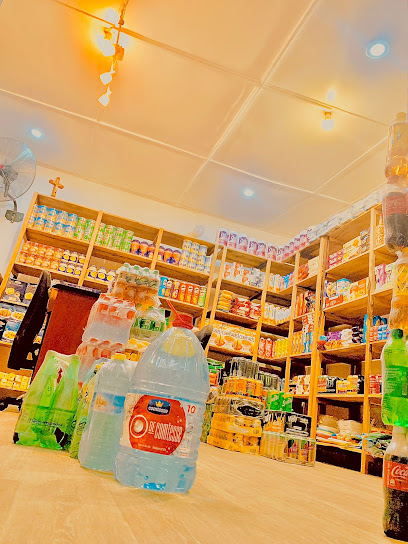
Porto grill
Discover delicious local and international cuisine at Porto Grill in Porto-Novo – a culinary delight for every traveler.
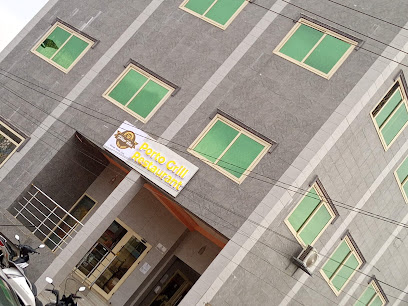
Légend'air
Discover the rich flavors of Benin at Légend'air, Porto-Novo's vibrant restaurant offering authentic cuisine in a warm atmosphere.
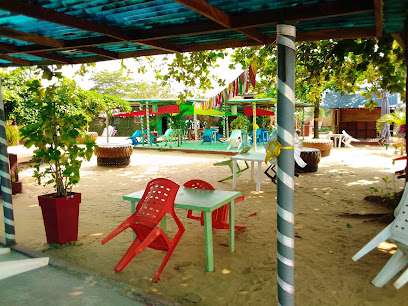
Mack&Donald Food
Experience exceptional fine dining at Mack&Donald Food in Porto-Novo – where local flavors meet culinary artistry.

La Pause
Discover the essence of Beninese cuisine at La Pause in Porto-Novo—where every dish tells a story.
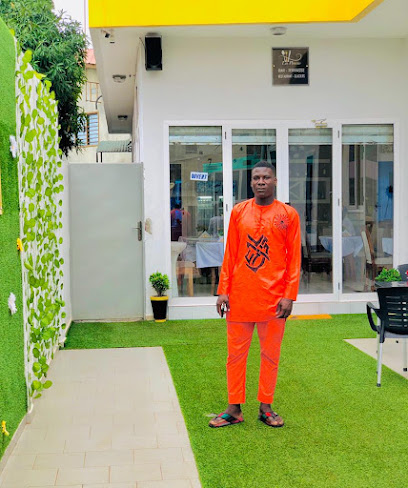
Ayoka 1
Experience authentic Beninese flavors at Ayoka 1 in Porto-Novo - where culture meets culinary delight.
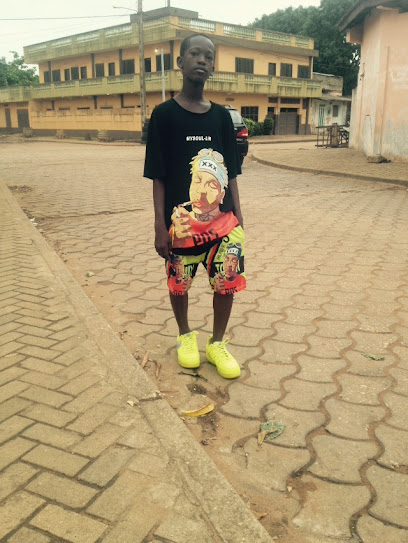
Restaurant Le Jatoba
Discover authentic local cuisine at Restaurant Le Jatoba in Porto-Novo - where flavor meets affordability.
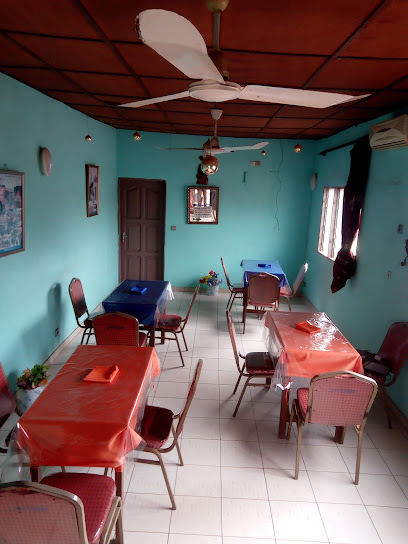
Smart Way Bouffe
Discover authentic Beninese cuisine at Smart Way Bouffe in Porto-Novo – a culinary experience filled with flavor and warmth.
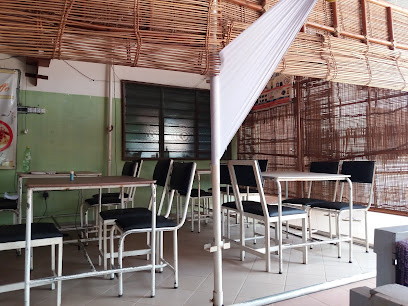
Markets, malls and hidden boutiques
Boutik Mum
Explore the vibrant flavors of Porto-Novo at Boutik Mum, your go-to grocery store for local produce and unique artisanal goods.
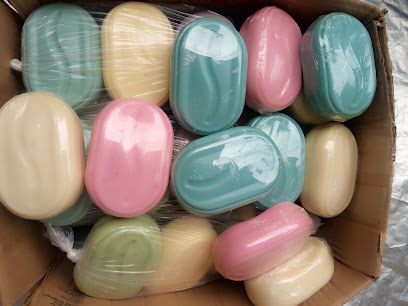
Le Baptiste
Explore the vibrant fashion scene of Porto-Novo at Le Baptiste, where tradition meets modern style in a unique shopping experience.
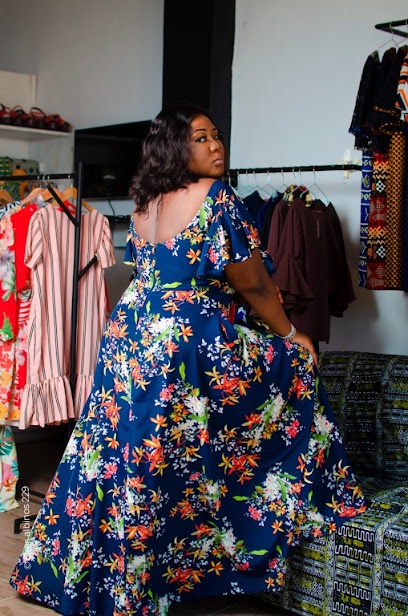
Boutique Fada Prada
Explore the vibrant world of fashion at Boutique Fada Prada in Porto-Novo, where local craftsmanship meets contemporary style.

BT et Fils ( Boutique Porto-Novo)
Explore the colorful world of fashion at BT et Fils in Porto-Novo, where local culture meets contemporary style.

MODJI CAPS
Explore the vibrant fashion scene at MODJI CAPS in Porto-Novo, where unique styles meet local culture for an unforgettable shopping experience.
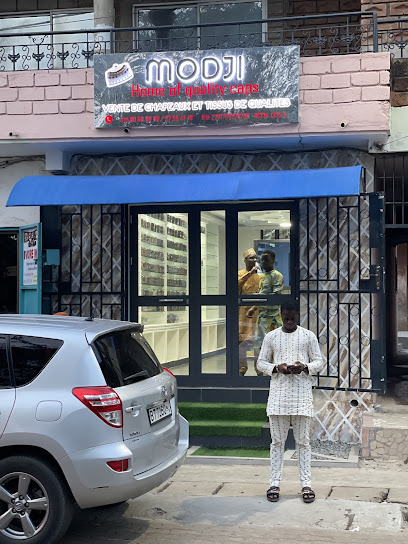
Gildo Store (Porto Novo, Cotonou Bénin)
Discover Gildo Store in Porto Novo for high-quality used computers and exceptional tech services, a must-visit for all tech enthusiasts exploring Benin.
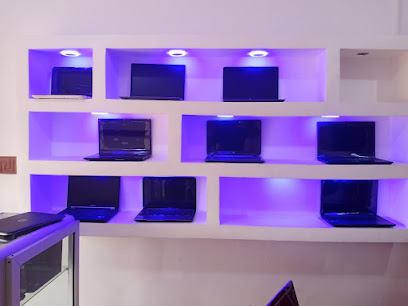
Cabane des Arts
Explore Cabane des Arts in Porto-Novo for unique local crafts and authentic souvenirs that embody the vibrant culture of Benin.
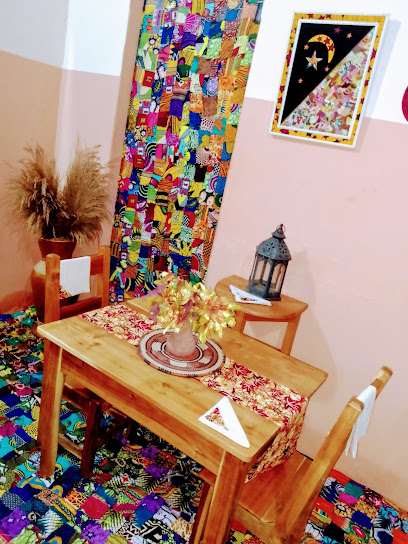
Sapement SHOP
Explore the eclectic styles of Sapement SHOP in Porto-Novo, where local fashion meets vibrant culture in a unique shopping experience.
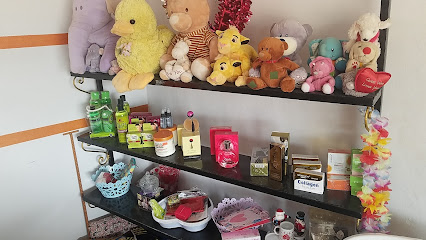
IRE FONIRE , Prêt A Porté, Électroménager, Sac & Vertement
Discover IRE FONIRE in Porto-Novo—your premier destination for stylish clothing and authentic Beninese lifestyle products.

PHINE Clothes
Explore the latest trends in fashion at PHINE Clothes, the top women's and men's clothing store in Porto-Novo, showcasing unique styles and local flair.
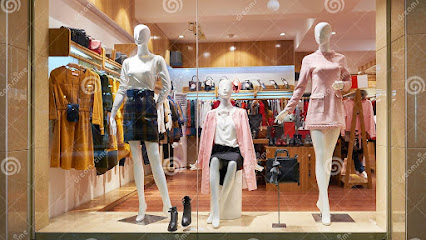
Prêt à porter TOUT EST GRÂCE
Explore unique fashion at Prêt à porter TOUT EST GRÂCE, Porto-Novo's premier clothing store offering local and contemporary designs.
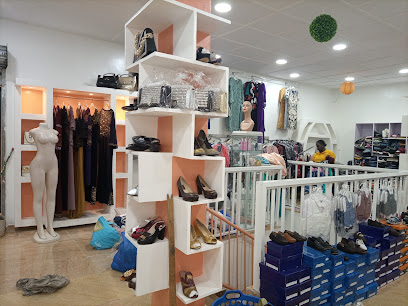
LP-House
Explore the rich musical culture of Porto-Novo at LP-House, your premier music store for instruments, vinyl, and local artistry.
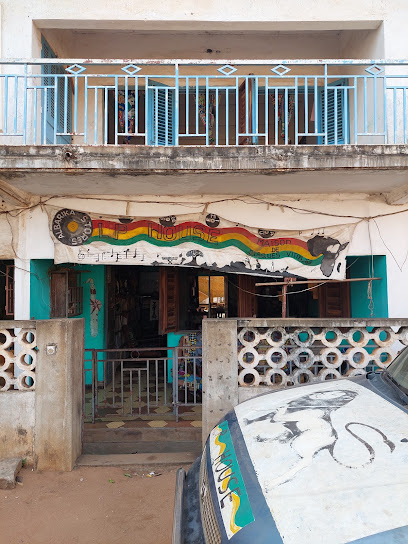
Prêt à Porter Mon Rédempteur Est Vivant
Explore the vibrant fashion scene of Porto-Novo at Prêt à Porter Mon Rédempteur Est Vivant, where local style meets contemporary flair.
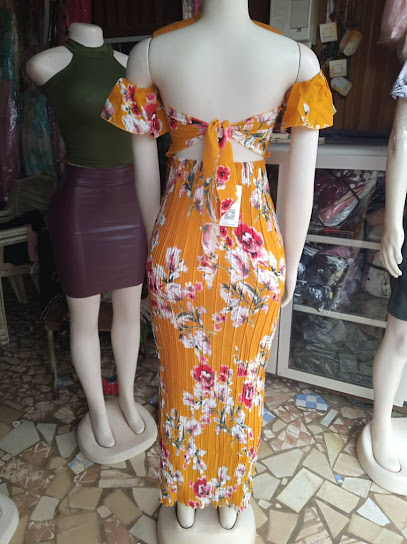
Héritage la Boutique en Ligne
Discover unique furniture and appliances at Héritage la Boutique en Ligne in Porto-Novo, where local craftsmanship meets contemporary design.

Clara Business
Discover the vibrant world of fashion accessories at Clara Business in Porto-Novo, where unique styles and affordability meet.

Essential bars & hidden hideouts
Point Final
Discover the vibrant atmosphere of Point Final, a lively bar in Porto-Novo offering local drinks and a taste of Benin's nightlife.
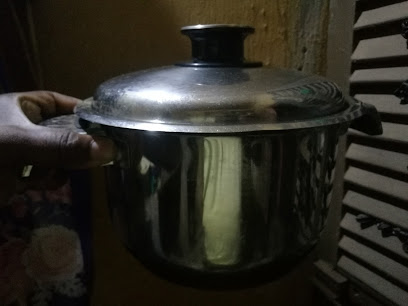
PHÉNIX BAR
Discover the vibrant nightlife of Porto-Novo at Phénix Bar, a local favorite for refreshing drinks and lively atmosphere.
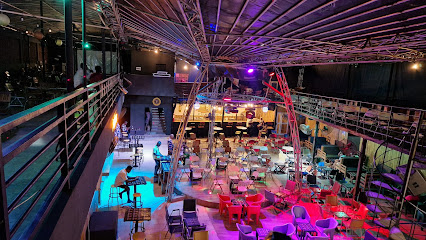
first class bar
Immerse yourself in the lively nightlife of Porto-Novo at the first class bar, where every drink is a celebration of local culture.
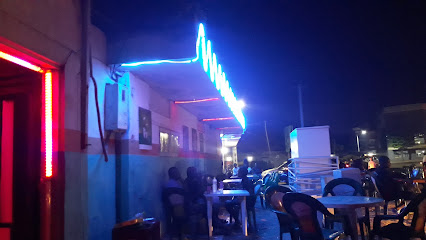
Souverain BAR
Discover the vibrant nightlife of Porto-Novo at Souverain BAR, where local drinks and lively atmosphere come together for an unforgettable experience.

Bar No limit
Experience the vibrant nightlife of Porto-Novo at Bar No Limit, where local music and delicious drinks create unforgettable memories.
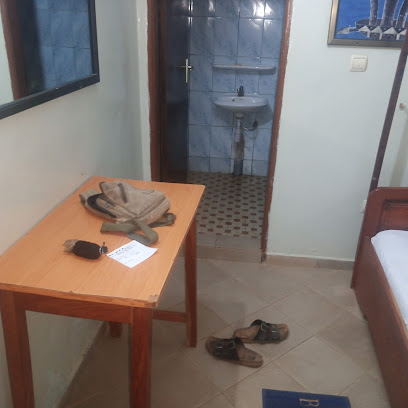
PANINI
Experience the vibrant nightlife of Porto-Novo at PANINI, a bar where local flavors and friendly vibes blend perfectly.

Le Chill
Experience Porto-Novo's vibrant nightlife at Le Chill, where delicious cocktails and lively music await in a welcoming bar environment.
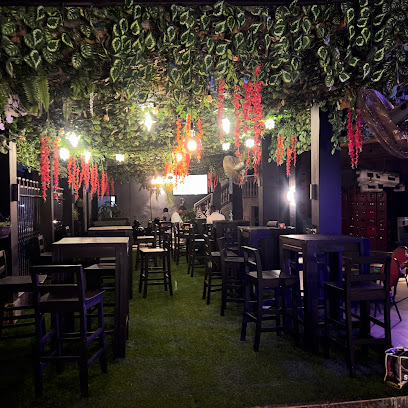
Le Cyclone bar restaurant de Porto-Novo
Discover the vibrant nightlife at Le Cyclone, Porto-Novo's premier bar for an unforgettable blend of local drinks and lively atmosphere.
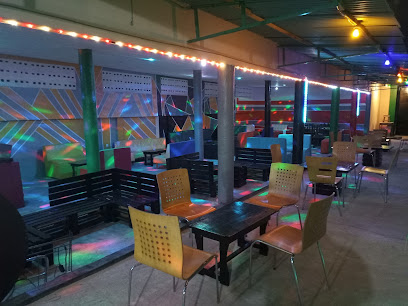
Obama Bar 2
Experience the vibrant nightlife and local culture at Obama Bar 2 in Porto-Novo, a top spot for tourists seeking fun and relaxation.
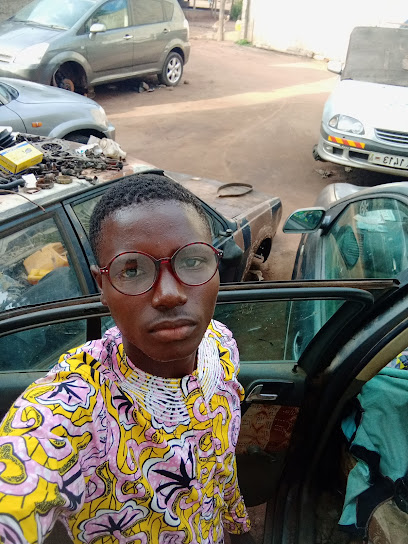
TIK TOK BAR RESTAURANT
Discover the lively Tik Tok Bar Restaurant in Porto-Novo, where local flavors and vibrant atmosphere create unforgettable dining experiences.

Porc porto
Experience the vibrant nightlife of Porto-Novo at Porc Porto, the go-to bar for locals and travelers alike, offering a warm atmosphere and delightful drinks.
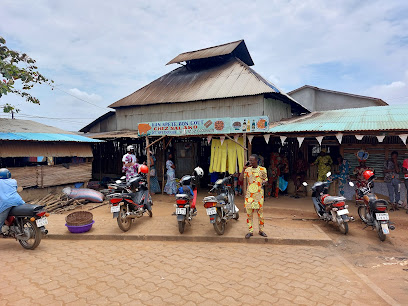
Quilox_bar
Experience the lively atmosphere at Quilox Bar in Porto-Novo, where cocktails and camaraderie blend seamlessly for an unforgettable night out.
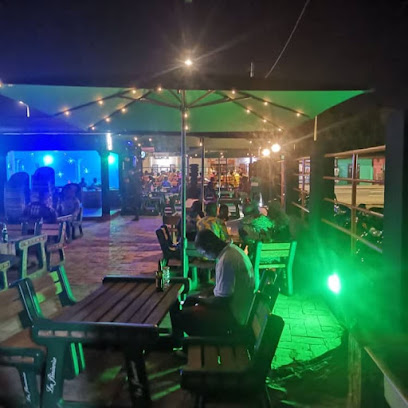
IGNAME PILEE AGOUN PORTO
Experience the vibrant atmosphere and local flavors at IGNAME PILEE AGOUN, a must-visit bar in Porto-Novo, Benin.

Dynamique Bar
Experience the vibrant nightlife at Dynamique Bar in Porto-Novo, where local flavors and lively ambiance come together for an unforgettable evening.

Local Phrases
-
- HelloẸ ku abọ
[Eh-koo ah-boh] - GoodbyeO dabo
[Oh dah-boh] - YesBẹẹni
[Beh-nee] - NoAra
[Ah-rah] - Please/You're welcomeẸ pẹ
[Eh-peh] - Thank youO ṣe
[Oh sheh] - Excuse me/SorryJọwọ
[Joh-woh] - How are you?Bawo ni?
[Bah-woh nee] - Fine. And you?Dada. Kini?
[Dah-dah. Kee-nee?] - Do you speak English?Nje e nso Yoruba?
[N-jeh eh en-soh Yoroo-bah?] - I don't understandEmi ko mọ
[Eh-mee koh moh]
- HelloẸ ku abọ
-
- I'd like to see the menu, pleaseMo fe ri ẹya, jọwọ
[Moh feh ree eh-yah, joh-woh] - I don't eat meatMo ko je eran
[Moh koh jeh eh-rah-n] - Cheers!Kanpai!
[Kan-pie] - I would like to pay, pleaseMo fe fi owo mi lo, jọwọ
[Moh feh fee oh-woh mee loh, joh-woh]
- I'd like to see the menu, pleaseMo fe ri ẹya, jọwọ
-
- Help!Ṣọkan!
[Shoh-kahn] - Go away!Lọ sọkun!
[Loh shoh-koon] - Call the Police!Gbọ number ọlopa!
[G-boh number oh-loh-pah] - Call a doctor!Gbọ number dọkita!
[G-boh number doh-kee-tah] - I'm lostMo ti lọ
[Moh tee loh] - I'm illMo ti nbe
[Moh tee in-beh]
- Help!Ṣọkan!
-
- I'd like to buy...Mo fe ra...
[Moh feh rah...] - I'm just lookingMo nkan nla
[Moh n-kahn nah] - How much is it?Ẹ pe ni owo ni?
[Eh peh nee oh-woh nee] - That's too expensiveYi ko dara ju
[Yee koh dah-rah joo] - Can you lower the price?Ẹ le fi owo yi lọ?
[Eh leh fee oh-woh yee loh]
- I'd like to buy...Mo fe ra...
-
- What time is it?Kini oru naa ni?
[Kee-nee oh-roo nah nee] - It's one o'clockỌkan
[Oh-kahn] - Half past (10)Aadota (10)
[Ah-ah-doh-tah (10)] - MorningỌla
[Oh-lah] - AfternoonỌsẹ
[Oh-sheh] - EveningỌjọ
[Oh-joh] - YesterdayNibe
[Nee-beh] - TodayNaa
[Nah] - TomorrowỌlaa
[Oh-lah] - 1Okan
[Oh-kahn] - 2Meji
[Meh-jee] - 3Mẹta
[May-tah] - 4Mẹrin
[May-reen] - 5Marun
[Mah-roon] - 6Mefa
[May-fah] - 7Meje
[May-jeh] - 8Mejo
[May-joh] - 9Mejiọrun
[Meh-jee-oh-roon] - 10Mokan
[Moh-kahn]
- What time is it?Kini oru naa ni?
-
- Where's a/the...?Nibo ni...?
[Nee-boh nee] - What's the address?Kini adirẹsi?
[Kee-nee ah-deh-ray-shee] - Can you show me (on the map)?Ẹ le fi mi ni (ni iwe imọ)
[Eh leh fee mee nee (nee ee-weh ee-moh)] - When's the next (bus)?Nibo ni o wa wa (bus)?
[Nee-boh nee oh wah wah (bus)] - A ticket (to ....)Ọkan eti (si ....)
[Oh-kahn eh-tee (see)]
- Where's a/the...?Nibo ni...?
History of Porto-Novo
-
Porto-Novo, the capital city of Benin, was founded in the late 16th century by the Aja people. Its name, which means 'New Port' in Portuguese, reflects its early history as a trading post established by Portuguese traders. The city soon developed into a significant center for the transatlantic slave trade.
-
In the 19th century, Porto-Novo fell under French control. The French established it as the administrative capital of their colony, Dahomey, in 1900. During this period, the city saw the construction of European-style buildings and infrastructure, many of which still stand today.
-
Porto-Novo is known for its rich cultural heritage, which blends Yoruba, Portuguese, and French influences. The city is home to several important cultural institutions, including the Ethnographic Museum, which houses artifacts related to the region's history and cultures, and the Honmé Museum, which was once the royal palace of the King of Porto-Novo.
-
Benin gained independence from France in 1960, and Porto-Novo retained its status as the official capital. Despite its historical significance, the city has often been overshadowed by Cotonou, the country's largest city and economic hub. Nevertheless, Porto-Novo remains a vital center for politics and culture in Benin.
-
The city boasts a unique architectural landscape that includes colonial-era buildings, traditional Yoruba houses, and Afro-Brazilian structures brought back by freed slaves. Notable landmarks include the Great Mosque of Porto-Novo, the Cathedral of Notre-Dame, and the Brazilian-style palace known as the Palais Royal.
-
Porto-Novo is vibrant with festivals that celebrate its diverse cultural heritage. The most famous is the annual Vodoun Festival, which honors the traditional Vodoun religion with colorful ceremonies, music, and dance. Other notable events include the Gelede Festival, which showcases Yoruba masquerade performances.
-
The city is a center for education and scholarship in Benin. It hosts several educational institutions, including the National University of Benin. Porto-Novo's libraries and research centers contribute to the preservation and study of the country's cultural and historical heritage.
Porto-Novo Essentials
-
Porto-Novo, the capital city of Benin, can be accessed primarily through Cotonou Cadjehoun Airport (COO), which is about 35 kilometers away. From the airport, you can take a taxi or a bus to Porto-Novo. The journey typically takes around 1 to 1.5 hours. Additionally, buses and shared taxis operate between major cities in Benin and Porto-Novo, providing an affordable travel option.
-
In Porto-Novo, transportation options include taxis, motorbike taxis (known as 'zemidjans'), and local buses. Taxis are a convenient but more expensive option, while zemidjans are cheaper and faster for short distances. Public buses are available for longer routes within the city and to neighboring areas. Renting a car is another option for those who prefer more control over their travel schedule.
-
The official currency in Benin is the West African CFA Franc (XOF). Credit cards are accepted in some hotels, restaurants, and larger shops, but cash is generally preferred, especially in smaller establishments and local markets. ATMs are available in Porto-Novo, but it is advisable to carry some cash, particularly for smaller purchases and in less developed areas.
-
Porto-Novo is generally a safe city for tourists, but it is important to take standard precautions. Avoid walking alone at night and keep an eye on your belongings in crowded areas. Some neighborhoods can have higher crime rates, particularly for crimes targeting tourists, so it is best to stay in well-lit and populated areas. Consult local advice for the latest safety information.
-
In case of an emergency, dial 117 for police assistance or 118 for fire services. For medical emergencies, dial 112. Porto-Novo has several hospitals and clinics where you can seek medical attention. It is highly recommended to have travel insurance that covers medical emergencies. Pharmacies are also available for minor health issues and over-the-counter medications.
-
Fashion: Do dress modestly, particularly when visiting religious sites and local communities. Avoid overly revealing clothing. Religion: Do respect local customs and traditions, including removing your shoes before entering certain places of worship. Public Transport: Do be courteous and respectful to fellow passengers. Don't eat or drink on public transport. Greetings: Do greet people with a handshake or a friendly nod. It is polite to greet elders first. Eating & Drinking: Do try local foods and accept hospitality graciously. Don't refuse food or drink offered to you, as it can be considered impolite.
-
To experience Porto-Novo like a local, visit the local markets where you can buy fresh produce and traditional crafts. Engage with locals, who are often friendly and eager to share their culture and history. Don't miss out on visiting the Royal Palace and the Ethnographic Museum, which offer deep insights into the city's heritage. For a unique experience, take a boat ride on the Oueme River, offering scenic views and a chance to see local wildlife.
Trending Landmark in Porto-Novo
-
Toffa
-
Porto-novo Bénin
-
Hotel Dona
-
Jardin des Plantes et de la Nature (JPN)
-
OUADADA Cultural Center
-
Regional Center Songhaï
-
Honmè Museum
-
HOTEL AYELAWADJE 2
-
ART Residence
-
Hotel Les Oliviers
-
Freedom Palace Hôtel
-
Tour Eiffel Hotel Benin
-
Coop Porto-Novo
-
Nonvi Voyage Plus - Station Embarquement Welcome Ouando
-
Grande Mosquée de Porto Novo
Nearby Cities to Porto-Novo
-
Things To Do in Cotonou
-
Things To Do in Ouidah
-
Things To Do in Lagos
-
Things To Do in Lokossa
-
Things To Do in Abeokuta
-
Things To Do in Aneho
-
Things To Do in Lomé
-
Things To Do in Notse
-
Things To Do in Ibadan
-
Things To Do in Atakpamé
-
Things To Do in Kpalimé
-
Things To Do in Ho
-
Things To Do in Koforidua
-
Things To Do in Accra
-
Things To Do in Benin City









